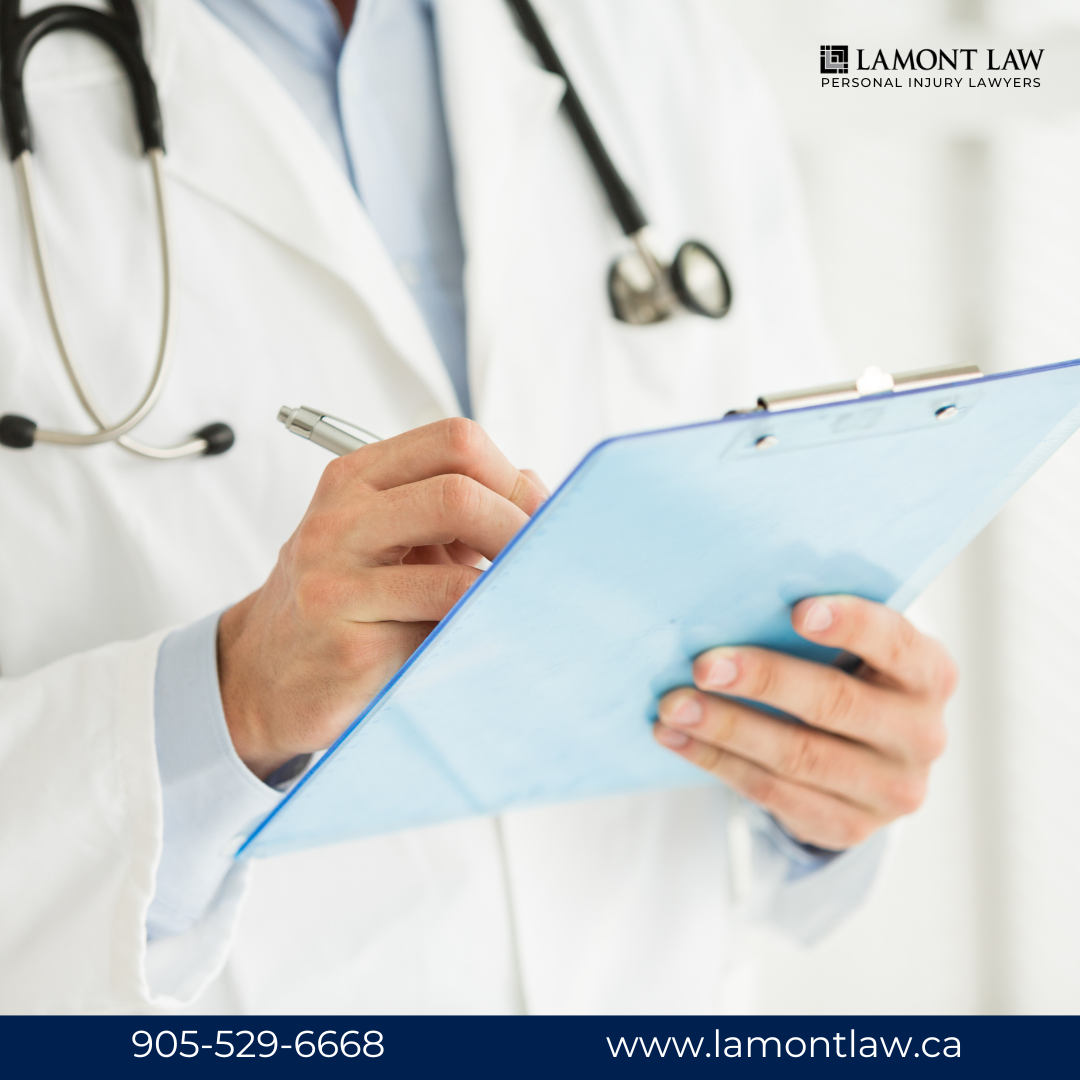At Lamont Law, we keep a close eye on how Ontario courts are deciding personal injury cases — and how those decisions can impact real people trying to recover after an accident.
A recent post on the Ontario Trial Lawyers Association (OTLA) blog, written by Samuel Pevalin, highlights a cautionary case that underscores just how important it is to follow up regularly with your doctor and report all injuries and symptoms — even those that seem minor — after a car accident.
The case of Maher v. Kiric, 2025 ONSC 2327, offers a clear reminder that when it comes to seeking compensation for accident-related injuries, documentation is everything.
The Injury That Wasn’t Fully Documented
In the Maher case, the plaintiff was struck by a vehicle while riding her bike and suffered visible injuries to her wrist and hand. She also reported hitting her head — but no concussion was diagnosed at the time, and the initial hospital visit didn’t include any record of concussion symptoms or follow-up.
When she later fell down stairs at home and was diagnosed with a concussion, she claimed it was related to post-concussion symptoms from the earlier car accident. But because she hadn’t documented those symptoms promptly — and they were missing from the first medical records — the court didn’t find a strong enough connection.
In short: her case failed to meet the legal “threshold” for serious and permanent injury, and she was denied compensation under Ontario’s Insurance Act.
The Legal Lesson: Your Health Record = Your Legal Evidence
The takeaway from this case — as highlighted in the OTLA article — is simple but critical:
If it’s not in your medical records, it’s difficult — sometimes impossible — to prove it legally.
That includes:
Concussion symptoms like headaches, dizziness, confusion, fatigue
Psychological effects like depression, anxiety, irritability
New or worsening symptoms weeks or months after the accident
In this case, even though the plaintiff later reported head trauma, the absence of early documentation and follow-up played a major role in the court’s decision to reject her claim.
Protect Yourself After an Accident: What to Do
Even if your injuries seem minor or you’re focused on healing, it’s essential to:
See your family doctor regularly, even months after the crash
Report all symptoms, not just the ones you think are “serious”
Keep personal notes on how your injuries affect your daily life
Follow up on referrals and recommended treatments
This isn’t just good medical advice — it builds the foundation of your legal claim, should you need to pursue one later.
Talk to a Personal Injury Lawyer Early
If you’ve been injured in a car accident, the time to get legal guidance is now — not when your claim is under threat.
At Lamont Law, we help our clients not only seek justice but understand the critical importance of medical documentation and how to build a case that can withstand challenges under Ontario’s threshold laws.
Free Consultation. No Obligation.
Have questions about your rights after an accident? We’re here to help.

